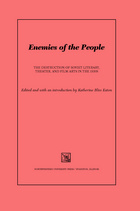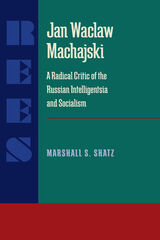


How does one explain the presence of educated recruits in movements that were overwhelmingly working class in composition? How did intellectuals function within the movements? In the first in-depth exploration of this question, Stanley Pierson examines the rise, development, and ultimate failure of the German Social Democrats, the largest of the European socialist parties, from 1887 to 1912. Prominent figures, such as Karl Kautsky, August Bebel, Rosa Luxemburg, and Eduard Bernstein are discussed, but the book focuses primarily on the younger generation. These forgotten intellectuals—Max Schippel, Paul Kampffmeyer, Conrad Schmidt, Paul Ernst, and others—struggled most directly with the dilemmas arising out of the attempt to translate Marxist doctrines into practical and personal terms.
These young writers, speakers, and politicians set out to supplant old ways of thinking with a Marxist understanding of history and society. Pierson weaves together over thirty intellectual biographies to explore the relationship between ideology and politics in Germany. He examines the conflict within Social Democracy between the “revisionist” intellectuals, who sought to adapt Marxist theory to changing economic and social realities, and those “orthodox” and “radical” intellectuals who attempted to remain faithful to the Marxist vision. By examining the struggles of the socialist intellectuals in Germany, Pierson brings out the special features of German cultural, social, and political life before World War I. His study of this critical time in the development of the German Social Democratic party also illuminates the wider development of Marxism in Europe during the twentieth century.

Demonstrates the centrality of thinking about intellectual class formation to social theory
Old as the notion of the “New Class” is (the term was coined by anarchist Mikhail Bakunin around 1870), the idea of the ascendancy of an intellectual elite continues to engage, and perplex, social theorists. In Theories of the New Class, Iván Szelényi, one of the most incisive and respected analysts of the intellectual class, and his colleague Lawrence King put New Class theories into a broad historical framework for the first time.
Addressing the intellectual history of Marxism and socialism, theories of the increasing role of the state and technocratic elites in capitalism, and theories of contemporary social change, King and Szelényi’s work clearly links the centrality of thinking about intellectual class formation to a variety of theoretical and political projects that have shaped social theory and influenced political realities over the past century.King and Szelényi show that the idea of the New Class has stubbornly entered and reentered the agenda of critical social theorizing throughout the last century. Indeed, they interpret that the last century as a history of projects by different groups of the highly educated—factions of intellectuals, bureaucrats, technocrats, managers, and the left-wing humanistic intelligentsia—to gain ultimate power. A rare empirical discussion of theory, Theories of the New Class invigorates class theories by grounding them in contemporary issues; at the same time, it uses modern polemics to revitalize historical debates on the origins of capitalism.READERS
Browse our collection.
PUBLISHERS
See BiblioVault's publisher services.
STUDENT SERVICES
Files for college accessibility offices.
UChicago Accessibility Resources
home | accessibility | search | about | contact us
BiblioVault ® 2001 - 2024
The University of Chicago Press









